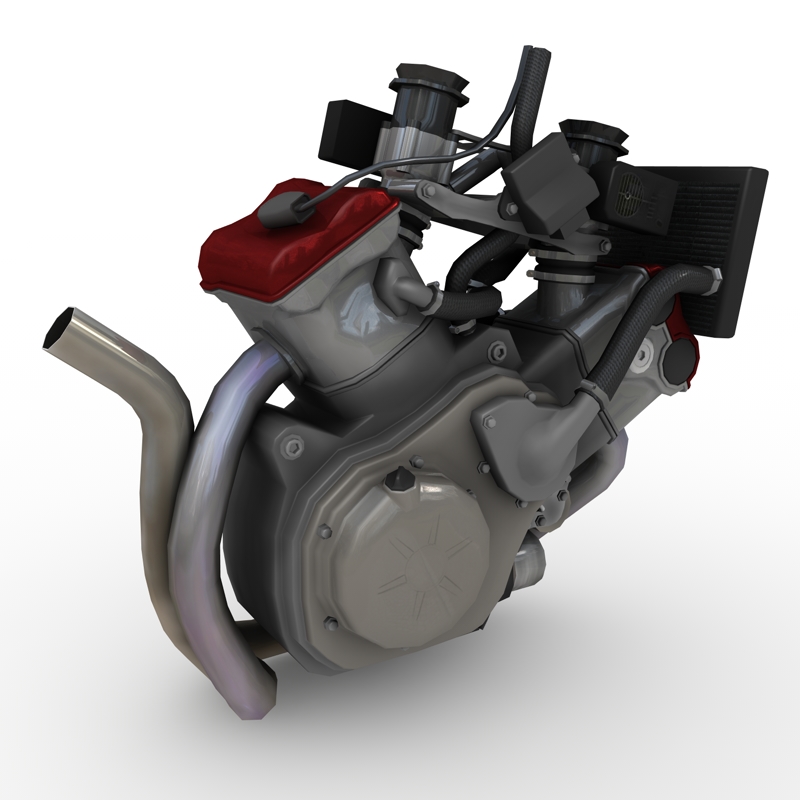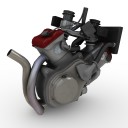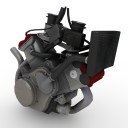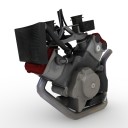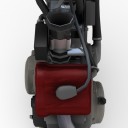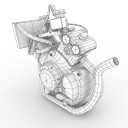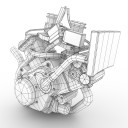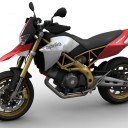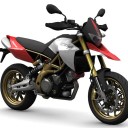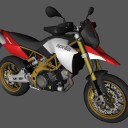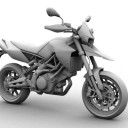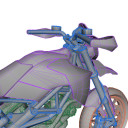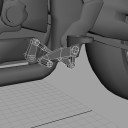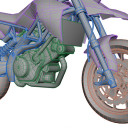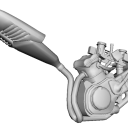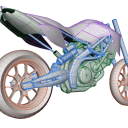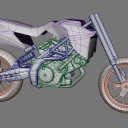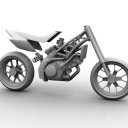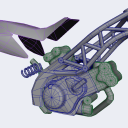Here they are; the final renders of the RC8 model! My next step will be UV mapping and texturing. Read More
Tag: motorcycle

I typically wake up early and do 3D to stay in practice, since I work in the Web industry. This morning I woke up to a PC that wouldn’t boot. It would POST, then detect the CPU, then just sit there on the energy star screen. After much troubleshooting I believe that it is a USB related issue. Unplugging all my USB devices allowed it to continue. After taking stock, it looks like my smart phone being plugged in could have been halting the process, although I have not tested this yet.
Update:
I’ve run a test and the Epic 4G is indeed the cause of this booting halt! Read More
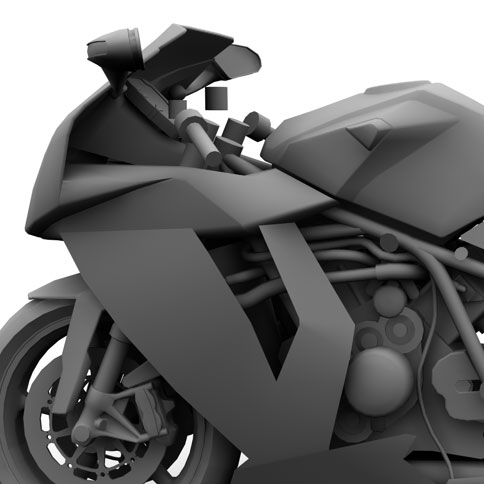
One of the pivotal points in a model is when I start to render it. Rendering a model (using the right shadowing and occlusion) will let you know what parts need more detail and what parts should be ignored (in terms of adding more detail).
In the images below you can see that certain areas are starting to be filled in with shadows and don’t really require additional details. Read More

The mirrors on a bike usually help create the silhouette of the machine. The RC8 mirrors are no ordinary kit either. Two things about these mirrors are relatively uncommon. Read More

At this point it shouldn’t be much of a guessing game if you know your bikes.
This bike is very distinctive, and thus far the most challenging thing for me is the fact that it’s a v-twin and I’m having trouble judging the distance between the engine’s cylinders and the fearing. From certain angles it feels like the gap is too large. Read More
Can you guess what bike it is?
Update: I’ve outed the bike in a more recent post, so we all know it’s the KTM RC8.

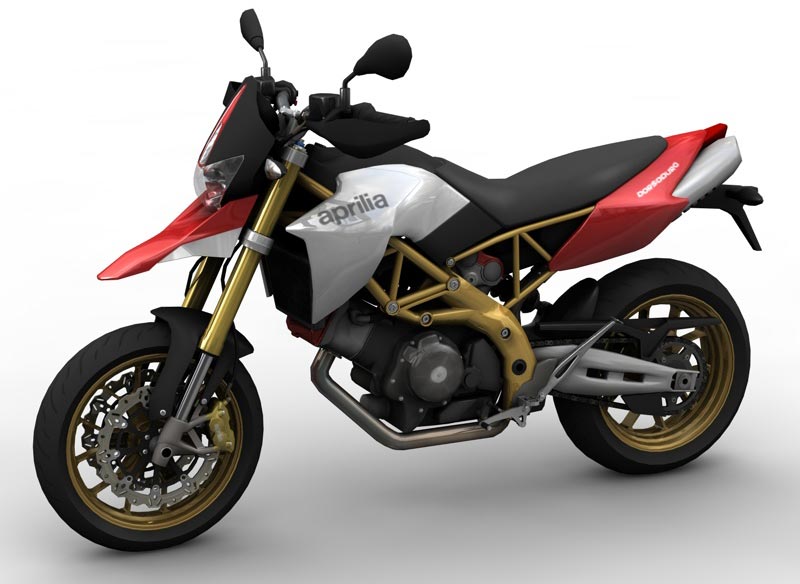
The Dorsoduro Supermoto was a bit of new ground for me. I’ve modeled a Supermoto before, but not like this, and not in Maya. The engine of the bike is largely exposed and that meant it had to look good, but I was also shooting for a reasonable polygon count.
A large number of key components are modeled using four sided polygons or “quads”, enabling them to be smoothed programmatically.
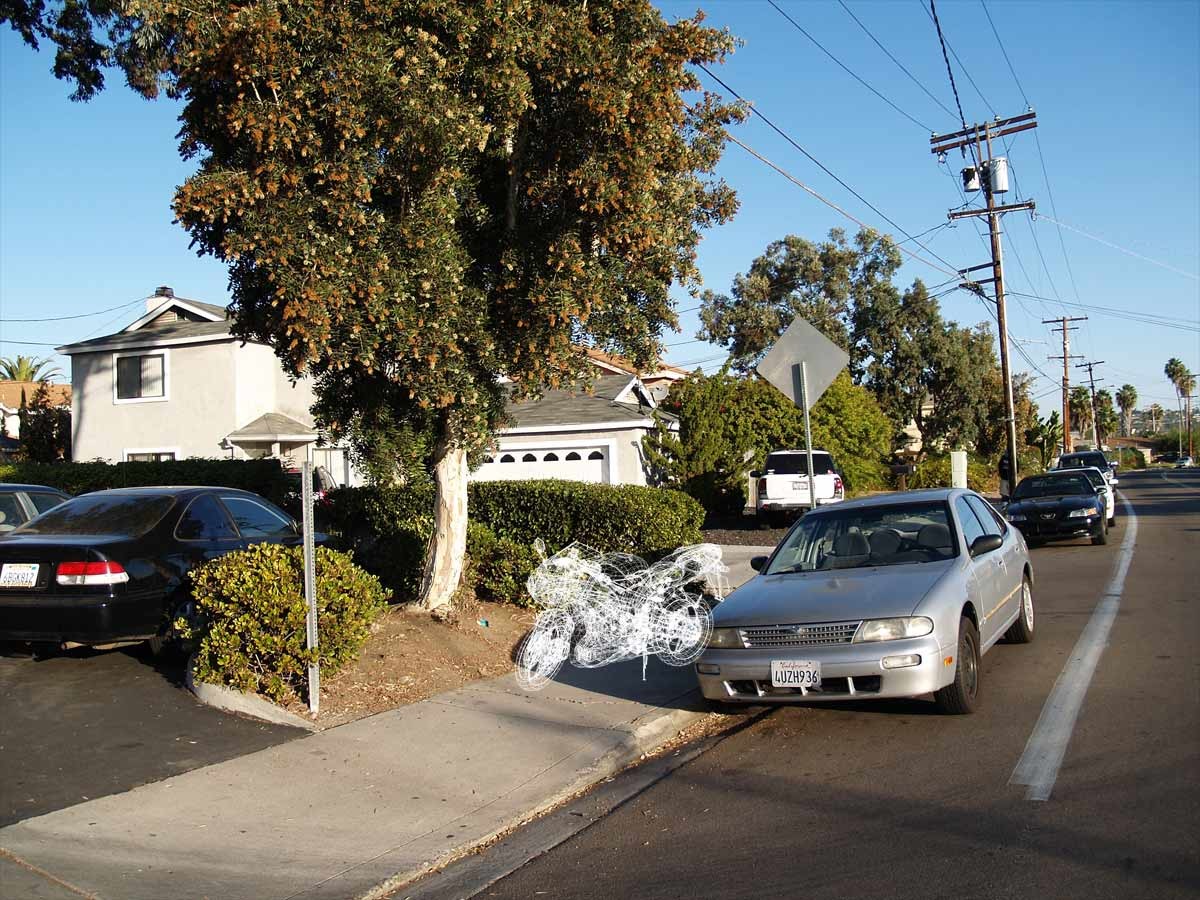
Many challenges come upon 3D artists, but doing photo-realistic compositions is all too familiar to me. At my previous job (EyeScreamAnimation) I was often given the task of lining up photos of empty construction sites or hillsides with 3D models for compositions like this one. In those cases, the model being lined up was usually a 3D building. For this project in my Advanced Visual Effects class, I chose to use my latest motorcycle model, a Kawasaki ZX-6R Ninja as the subject, and the school parking lot as the background plate. While it’s refreshing to composite a scene that’s not a building, I still feel that the image isn’t quite satisfying. The more I look at this image, the more reasons I list of why it is technically correct. While on the other hand, I feel that I am my own worst critic. Read More

And it’s done!
My previous attempt at creating a 100% non-overlapping UV map was not very successful. Thus, I have substituted most of the UV map in favor of my previous technique of mapping – stacking.
Stacking UVs that have common surface properties such as black plastic, chrome, polished aluminum, can greatly reduce the region needed to texture in these areas. Additionally, you can stack symmetrical parts like headlights and turn signals. Read More
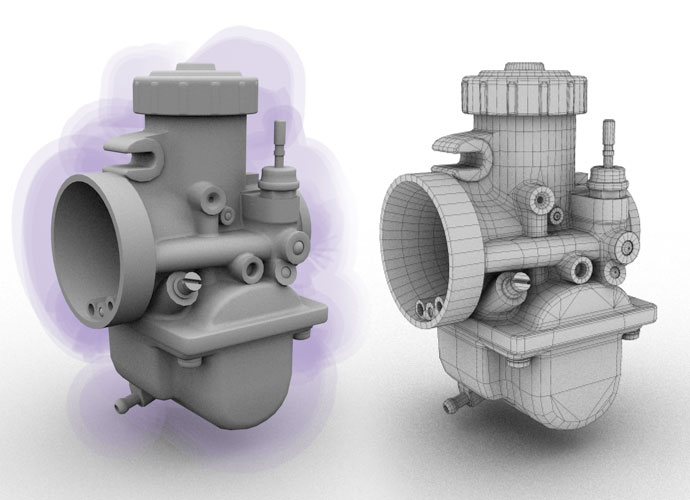
This carburetor model will be fed into a rapid-prototyping machine for use in a scale model. The carburetor will be used in a 1:5 replica of a ’74 TZ350 that originally raced in Australia. Some parts will be metal, some hand fabricated alloy, and other bits (like this one) will be created by rapid-prototyping. Read More
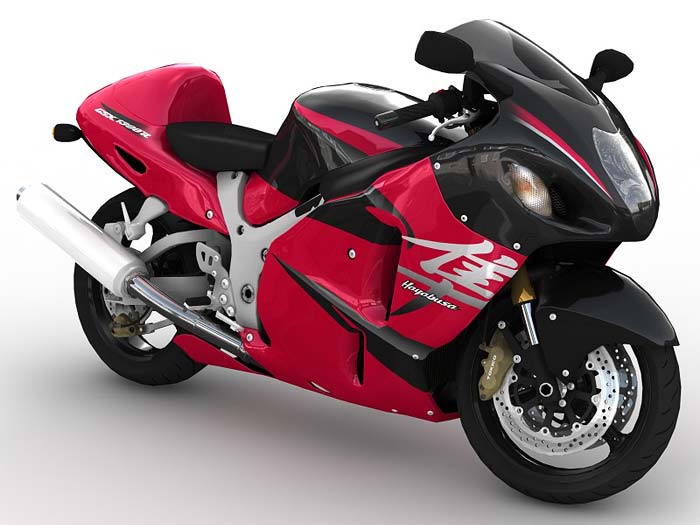
The Hayabusa has long been one of the more popular bikes with a greater than 1000cc motor. The 1300cc motor on this beast has been a favorite for modding and even turbo-charging.
This 3D Model of the “Busa” is the 2005 version, and although not much was changed on these bikes since the first Hayabusa, the color schemes created for this one are mostly representative of the ’05 model. Read More

